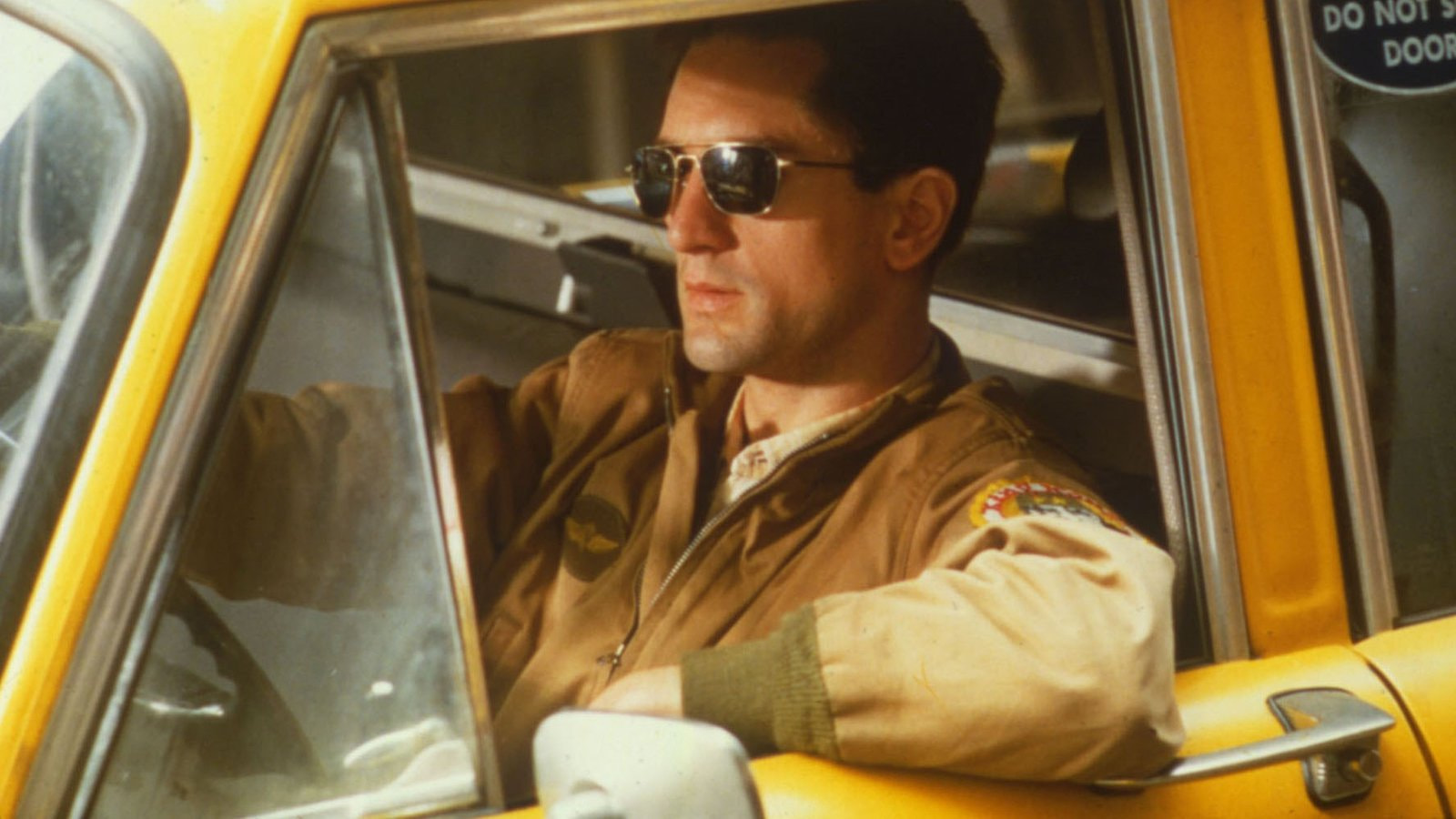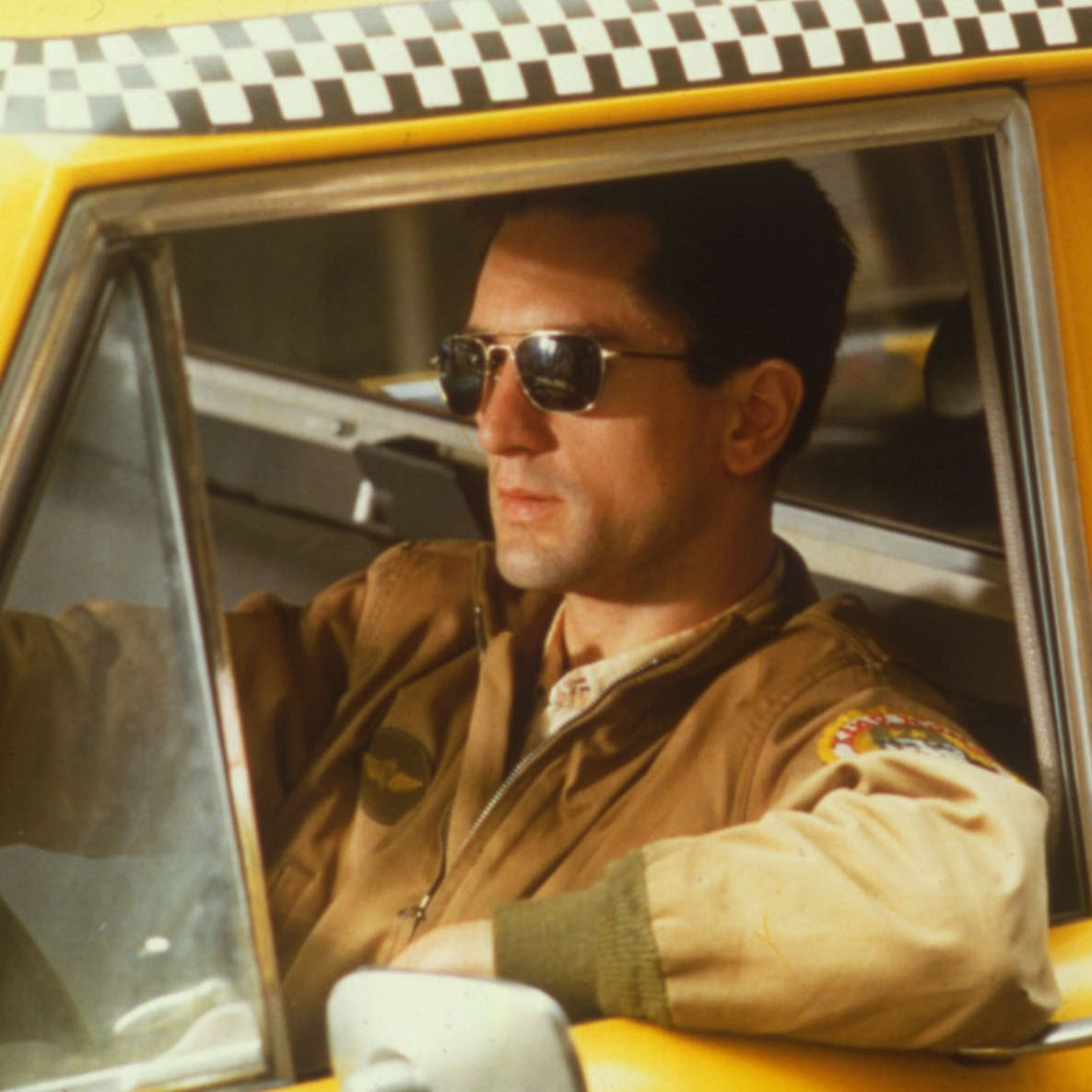The forty-fifth anniversary of a New Hollywood classic
In mid-1970s New York, a corrupt city on the verge of bankruptcy, a Vietnam veteran Travis Bickle—suffering from post-traumatic stress disorder and isolated from the world in his taxi—is sick and tired of the injustice around him and decides to take matters into his own hands. A mad fusion of sensibilities that might seem incompatible—noir, neorealism, exploitation, and the French New Wave—Taxi Driver brought Martin Scorsese a Palme d’Or at the 1976 Cannes Film Festival as well as four Oscar nominations. The film placed at number 31 in Sight & Sound’s list of 100 best films according to critics.
Taxi Driver was Scorsese’s first collaboration with screenwriter Paul Schrader, followed by Raging Bull (1980), The Last Temptation of Christ (1988), and Bringing out the Dead (1999)—and the last work or composer Bernard Herrmann—the famous Hitchcock collaborator who wrote the music for Taxi Driver just before his death. Scorsese contributed his signature themes of redemption (Travis is trying to save the child prostitute Iris from the pimp), while Schrader was influenced by Dostoyevsky and Sartre’s existential writings and Bresson’s films. Michael Chapman’s contrasted cinematography with complex arrangements of actors makes Bickle’s night trip across New York look like a bad dream lined with smudged neon.
The choice of the 12-year-old Jodie Foster for the role of the prostitute and her participation in the final shoot-out, which was extremely violent for its time, caused a scandal upon the film’s release. However, Jodie Foster, subjected to psychological testing before the filming and accompanied on the set by a social worker to mitigate the potential emotional harm, insisted that she chose to take part in the film herself. Her BAFTA-winning unchildlike performance forever changed the public idea of roles appropriate for child actors, which were until then limited to innocent and helpless characters. Adding to his list of well-prepared roles, Robert De Niro obtained a license to work as a taxi driver in New York during the filming of Bertolucci’s 1900 (1976) and studied the accent and the mannerisms of Midwestern soldiers. The role of one of the most memorable antiheroes in world cinema—a PTSD and insomnia-driven vigilante—brought him nominations for an Oscar and a Golden Globe.
Relevant as ever today, Taxi Driver continues to influence contemporary film—from Nicolas Winding Refn’s Drive (2011) to Joker (2019) by Todd Phillips and The Deuce series (2017–2019) by David Simon and George P. Pelecanos—set inside and outside of porn theatres similar to the one frequented by Bickle.
The film will be screened in English with Russian subtitles.
Taxi Driver
Director: Martin Scorsese
USA, 1976. 114. 18+

